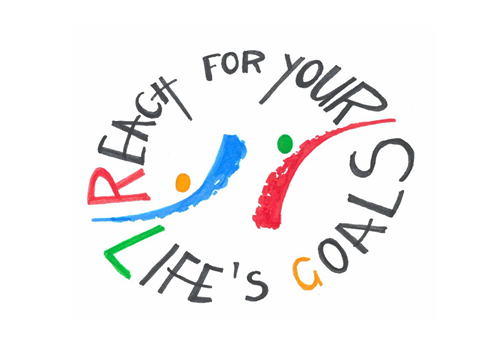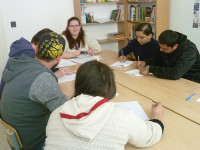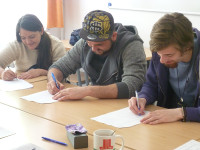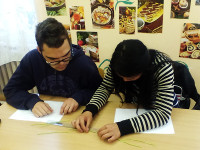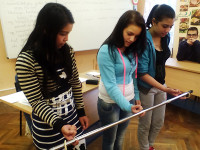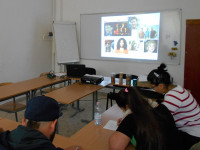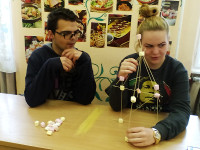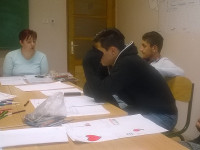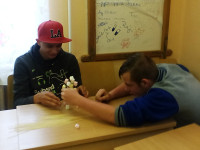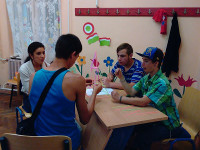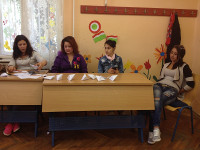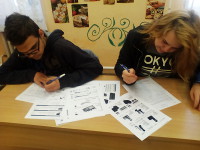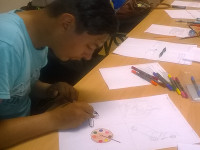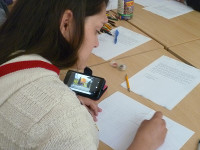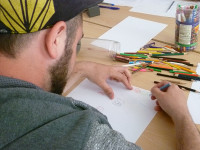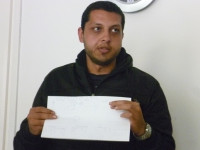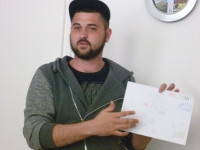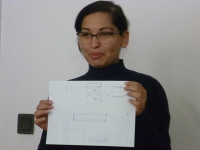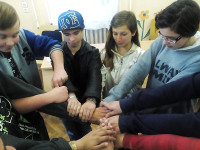Second sequence Hungarian test groups
April-July 2016
The second sequence of competence assessment and development days in Hungary took place in three locations with two organizations incorporating six groups, and involving 53 participants.
MIOK Foundation as a supporter of disadvantaged people became a project partner in South Hungary again as in the first phase of testing. The groups from the city of Pécs had seven members made up of young people. The majority studied at the Faculty for Social Workers at the local university. Through their studies they had gained experience about people in their local environment and dealt with many who had opted out of education or employment. They participated in the test trainings motivated by inquiry and hoped to utilize the activities they had become familiar with earlier in their future work. The feedback they gave to the programme developers provided them with valuable ideas to improve the activities.
The same foundation managed a small group of four persons in the village of Szalánta situated South of Pécs whose members were NEET young people aged 18-24 facing various personal challenges. They finished just eight grades of primary school and had serious shortcomings with their basic skills. Despite their circumstances they joined the development activities in an open-minded and active way. None of them dropped out during the programme and appreciated their time spent together as being useful to them.
Most of the experiences of the second testing circle were gained in the city of Gyula, Eastern Hungary, where the project cooperated with the local vocational centre. RLG was integrated into the BRIDGE programme which gives a second chance for young people aged 15-20. The participants have not finished primary school or have dropped out of vocational training. They cannot be considered as NEET people in the strict sense of the word, although they faced a direct threat of sliding into the NEET life situation within a short time. The RLG programme had a preventive function for the group that time. The young people concerned comprised 42 participants and formed four groups.
The group profiles drawn by the trainers showed that it was rather difficult to deal with them. Most of the learners were out of college learners living in settlements around the city. It was not easy to motivate them at the beginning because they showed little interest in the activities and the trainers had to overcome their resistance. More and more pupils however relaxed with time passing and realized they might be able to utilize the joint activities in the future. In the end all the four groups completed the activities successfully.
The teacher colleagues involved in delivering the programme cooperated in the development process with meticulous care. They have given a number of views which could be used as valuable pieces of advice for the trainers' guide. They also affirmed that the young people they taught wanted this type of training badly. That explains why they plan to incorporate the components of RLG into their own pedagogical programme.
The most important ideas connected with the development of the activities as general experience were as follows:
- It is essential to initiate the various activities in a proper way – the participants should understand what they are actually doing and why they are doing so; they should treat playful activities more than mere 'playing around'.
- It is also essential to connect the activities to real life problems and make the young people aware of this interrelation.
- It is worth cutting longer activities into shorter sections because concentration proves to be difficult for a large number of people.
- The activities requiring writing activities should be supplemented by optional components to replace difficult writing by colouring papers, making simple notation or arranging cards.
Although trainers in North-Hungary were prepared to start two additional groups, they could not arrange the testing activities during that period due to some local difficulties. They have however kept their relationship with us and we hope to continue working together.
2016. 07. 15.


